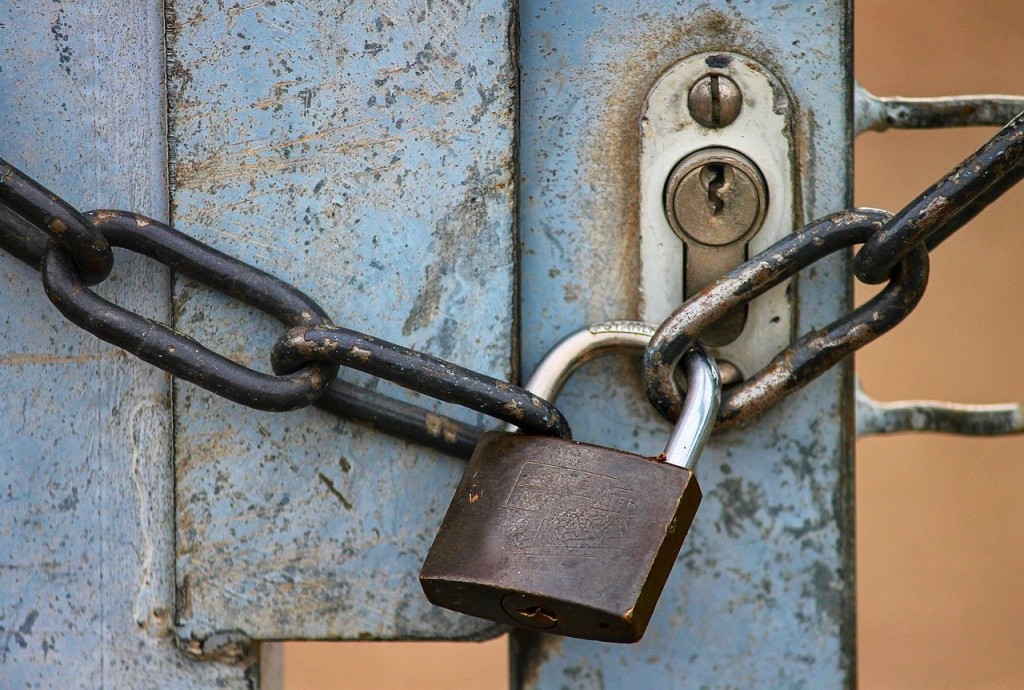Parashat Aharei Mot/Q’doshim (5780 – 2020)
Leviticus 16:1 – 20:27
Our Torah reading begins with reference to the tragic deaths of two of the sons of Aaron, the High Priest. (Lev. 16:1) They died because they tried to enter the holy sanctuary inappropriately. The Torah goes on to limit access to the inner space, the Holy of Holies, to very specific conditions. The High Priest enters only on the Day of Atonement and only in certain clothes and with certain rituals to perform. Otherwise everyone is prohibited from entering that sacred space, on pain of death. For the Torah this warning is necessary because she assumes that everyone will desire to enter the holy all the time.
We are presently also barred, on pain of death, from entering our sanctuary, even though we dearly wish to do so. In order to preserve life, we must observe strict precautions. Strangely, our restraint from entering the holy is actually a gift, the gift of life to ourselves and to others. As I have repeatedly discussed with regard to this Torah portion, the very concept of holiness involves the dedication to serve and give to others. So, for now, our very avoidance of entering our holy space is actually an entry into a holy realm of giving and sustaining life for everyone.
Nahmanides, the great medieval sage, points out a profound lesson about the commandment to be holy. He asks why such a command is needed. Wouldn’t it suffice to simply obey all the other laws of the holy Torah? Wouldn’t holiness simply follow automatically? So he explains that merely insisting on following the law can still result in a person being a “naval birshut ha-Torah – a scoundrel within the bounds of the Torah.” No, something more is needed. It is necessary to strive to go beyond one’s self, beyond one’s entitlements and rights. But, as our reading tells us, access to the holy – to a commitment to generosity toward others – is difficult and discontinuous. Sometimes we need a tragedy to remind of us of the imperative to strive to be holy – to be giving.
So it is sad that the pandemic we are experiencing is being used by some people as an excuse to ignore or deny the call to holiness.
This week we observed Israel Independence Day. For those following developments there, this period has been full of anxiety for everyone’s safety and also tension regarding Israel’s political health. Using the pandemic as their justification, politicians who had pledged to oppose the present corrupt and un-democratic Israeli government have capitulated and decided to forge a united coalition. This coalition is dedicated to protecting a Prime Minister who is a scoundrel and has pledged to annex – that is, to steal – much of the West Bank. All of this is a clear violation of everything the Torah holds as holy. But those who care about these values have found themselves in a shrinking , seemingly powerless, minority.
Closer to home, we have seen that some people in Montclair have shamelessly used the pandemic as a way to stop the Rent Control Ordinance recently adopted by the Town Council. It is vividly clear today, as it has perhaps never been before, that renters need protection and deserve to have a sense of security. But “property rights” have been claimed by landlords as sacrosanct, overriding any sense of obligation to fulfill the commandment to “love your neighbor as yourself,” (Lev. 19:18), overriding any commitment to strive for holiness – generosity of spirit and action. It remains to be seen whether Montclair residents will rise to this challenge.
The Torah sought to regulate what it feared would be our reckless desire for holiness. But, apparently, access to the holy is not something that some people wish for. Nevertheless, it is a non-negotiable command: “Be holy!,” say God. But can we really strive for holiness if we don’t genuinely desire it? The Torah reassures that that we can and must, for we were created in God’s Image, given divine gifts of strength – “for I, the Eternal, Your Source of Strength, am holy.” (Lev. 19:2)
Shabbat Shalom
Rabbi David Greenstein
Subscribe to Rabbi Greenstein’s weekly d’var Torah
image – untitled by Manfred Richter licensed via Pixabay
Thank you to John Lasiter for suggesting the title and selecting an image for this Torah Sparks – Rabbi Greenstein
- Toby Stein: In Memoriam - Thu, Feb 8, 2024
- Faithfulness and Hope: Parashat Sh’lach - Thu, Jun 23, 2022
- Past Their Prime: Parashat B’ha`a lot’kha - Thu, Jun 16, 2022

